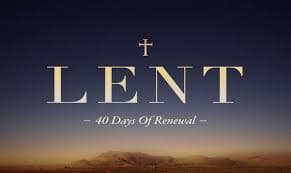Thanksgiving: Expressing Gratitude

When one reads the book of Psalms and what Israel declared about what God had done for them, one realizes that the people of Israel were a grateful people and that they offered thanksgiving to God in songs, in prayers, and in worship.
The gratitude of Israel was expressed in worship in the temple, as the people came into God’s presence to celebrate God’s faithfulness. In worship, Israel expressed joy and gratitude for the many blessings received from God, for God’s mighty acts performed on behalf of the community, or for anything that changed the life or the circumstances of an individual Israelite.
In addition, a study of the Psalms reveals that whenever the people came to give thanks to God, thanksgiving was always in the context of worship and it was always accompanied by an offering. The people expressed their thanksgiving with words and demonstrated their gratitude with an offering.
There is a remarkable contrast between the way Israel gave thanks to God and the way people give thanks today. People today are different: people say much but give little. People thank God for blessings received, but often, that expression of thanksgiving never comes with an offering.
In Israel, the voice of the people and their offering to God signified the grateful acknowledgment for the gifts and for the blessings received from God. Take, for example, the words of the psalmist in Psalm 7:17:
“I will give thanks to the LORD because of his righteousness and will sing praise to the name of the LORD Most High.”
Psalm 7 is the cry of an innocent person pleading with God for help. The worshiper is asking God to answer his prayer. He is asking God for a special favor. He wants God to vindicate him before the community. At the end of his request, when God answers his prayer, the psalmist promises to do two things. First, he says, “I will give thanks to the Lord.” Then, he “will sing praise to the name of the Lord.” To the psalmist, thanksgiving is expressed in worship; thanksgiving and worship come together.
Thus, from a biblical perspective, thanksgiving comes in anticipation of a blessing to be received or in anticipation of a prayer answered. A good example of thanksgiving in anticipation of a prayer answered is found in Jesus’ prayer at the tomb of Lazarus. When Jesus came to where Lazarus was buried, before he ordered Lazarus to come out of the tomb, Jesus prayed and said: “Father, I thank you for having heard me” (John 11:41). Jesus thanked the Father before his prayer was answered.
In light of the psalmist’s expectation that his prayer would be answered and in light of Jesus’ prayer of thanksgiving in anticipation of a prayer answered, there are three important lessons people should learn about thanksgiving: people should thank God before they receive God’s blessings, they should thank God after they receive the blessings, and they should worship God as an expression of their gratitude for the blessings received.
The same coupling of thanksgiving with gratitude appears in Psalm 9:1-2:
“I will give thanks to the LORD with my whole heart; I will tell of all your wonderful deeds. I will be glad and exult in you; I will sing praise to your name, O Most High.”
From the words of the psalmist, several lessons can be learned about thanksgiving. The psalmist said: “I will give thanks to the LORD with my whole heart.” These are words of genuine gratitude. His “whole heart” means his whole life. The psalmist is grateful to God, so he gives thanks for everything he has and for everything he is.
He said: “I will tell of all your wonderful deeds.” The psalmist is so confident that God will answer his prayer, that as an expression of his gratitude, he will tell others what God has done for him. To the psalmist, telling others what God has done for him was a demonstration of his gratitude.
He said: “I will be glad and exult in you.” Joy and happiness is the result of having received a blessing from God in answer to prayer. The psalmist says that his joy and happiness are in God, not in the blessing but in the giver of the blessing. Joy and happiness are properly expressed in worship and praise.
He said: “I will sing praise to your name, O Most High.” The psalmist promised to sing the praises of God with other believers because God would vindicate him and because he was filled with a sense of wonder when he thought about God’s marvelous ways toward him. Another worshiper expressed the same desire to give thanks to God in the presence of other worshipers: “I will give thanks to the LORD with my whole heart, in the company of the upright, in the congregation” (Psalm 111:1).
Today we celebrate Thanksgiving Day, but what should we do to express our thanksgiving to God? First, we express our thanksgiving to God in worship. However, when you come to give thanks to God, do not come empty handed. Give out of the abundance God has given you. Considering that the Lord’s great love never ceases and that his compassion never fails (Lamentations 3:22), offer your bodies as living sacrifices, holy and pleasing to God (Romans 12:1). Then, tell others what the Lord has done for you: “Come and listen, all you who fear God; let me tell you what he has done for me” (Psalm 66:16).
Happy Thanksgiving.
Claude Mariottini
Emeritus Professor of Old Testament
Northern Baptist Seminary
NOTE: Did you like this post? Do you think other people would like to read this post? Be sure to share this post on Facebook and share a link on Twitter or Tumblr so that others may enjoy reading it too!
I would love to hear from you! Let me know what you thought of this post by leaving a comment below. Be sure to like my page on Facebook, follow me on Twitter, follow me on Tumblr, Facebook, and subscribe to my blog to receive each post by email.
If you are looking for other series of studies on the Old Testament, visit the Archive section and you will find many studies that deal with a variety of topics.








